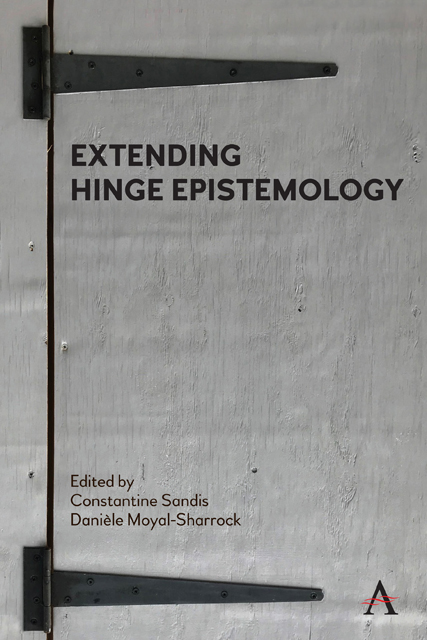Chapter Five - Closure-Based Scepticism and Epistemic Restrictions: A Dialectical Approach to Hinge Epistemology
Published online by Cambridge University Press: 09 December 2022
Summary
The aim of this chapter is to evaluate a family of responses to Cartesian scepticism whose common point is to rely on the noncontextualist restriction of one or more epistemic principles; more precisely, principles asserting the closure of knowledge under various logical operations. I shall attempt to show that one cannot respond to closurebased scepticism without considering other applications of closure principles than that which is usually the exclusive subject of discussion in the contemporary literature. Those other applications of closure principles give rise to different sceptical arguments, and I shall argue that if one takes those other closure-based arguments into account (and understands the challenge raised by the sceptic in a minimally internalist and rational sense) then one is faced with serious difficulties, for it seems that no theoretical solution can be found unless one settles for some questionable dialectical misbehaviour, such as begging the question against the sceptic, most notably. In particular, I shall defend the view that any solution relying on the Wittgensteinian idea of ‘hinge’ falls prey to those problems, if it is interpreted in such a way that it lends to a special kind of propositional attitude, distinct from ordinary belief.
Two Dialectical Constraints: Modest Internalism and Logical Awareness
First, let us say a few words about both the kind of scepticism that will be discussed in the present chapter and the basic notation that will be used. Closure-based scepticism, sometimes improperly called Cartesian scepticism, is based on the evocation of certain hypotheses, the most well-known being that of the brain in a vat, and whose defining feature is that it is both incompatible with our ordinary representation of the world, and such that we seemingly cannot ascertain whether it is true or not. In what follows, I shall not consider the precise content of this or that sceptical hypothesis and will simply designate by the letter ‘h’ a hypothesis that satisfies the conditions I have just described, whatever its exact content. Since the aim of sceptical hypotheses is to question our epistemic position towards propositions that we would normally claim to know, I shall also use the letter ‘p’ to designate any proposition that has as its logical consequence the falsity of the sceptical hypotheses, and which is normally the object of a claim to knowledge, once again whatever its content may be.
- Type
- Chapter
- Information
- Extending Hinge Epistemology , pp. 91 - 108Publisher: Anthem PressPrint publication year: 2022



